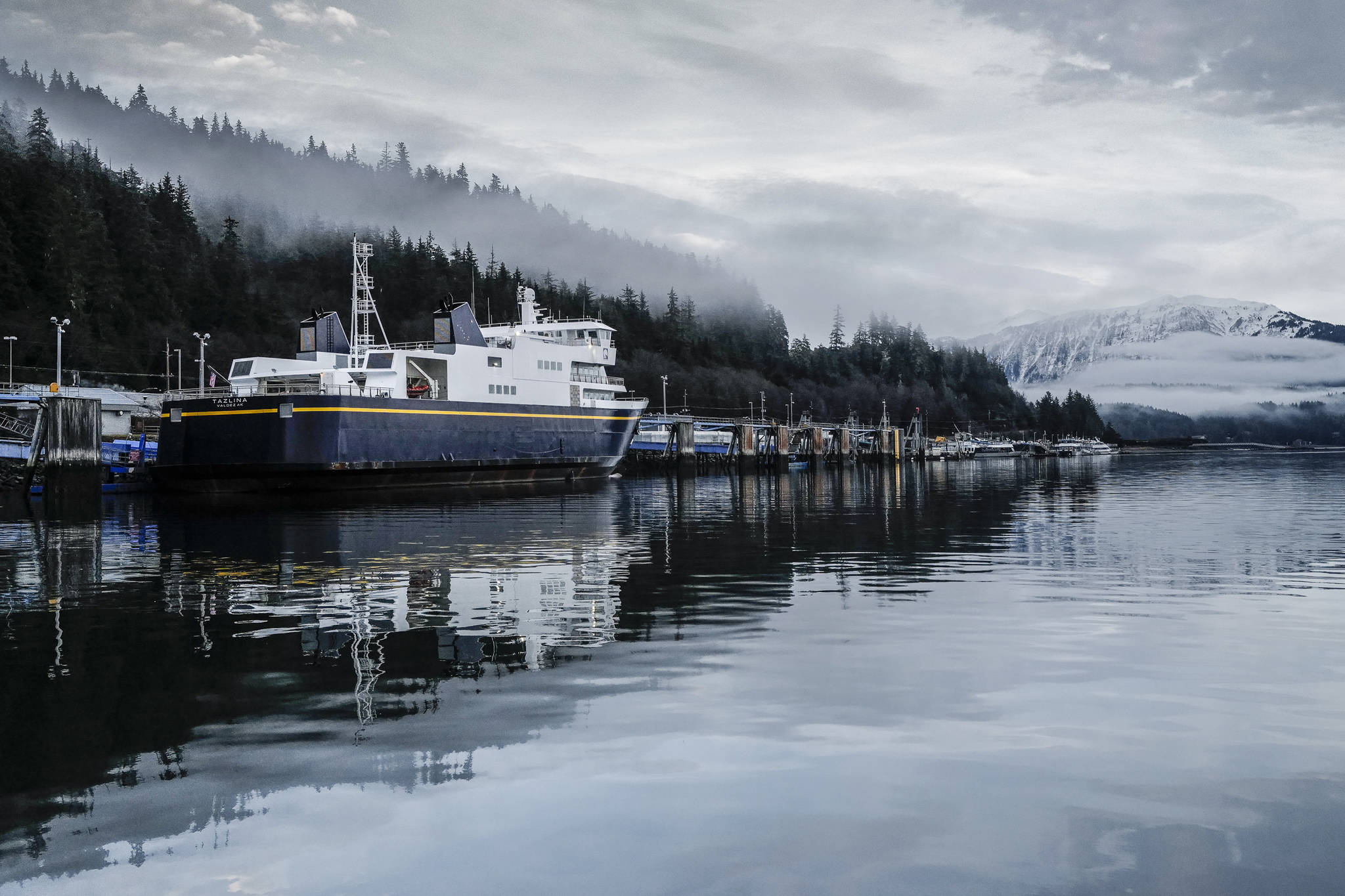With an aging fleet, fewer riders and major budget reductions, the Alaska Marine Highway System is feeling the hurt. Six of the state’s 11 ferries have been taken out of service as of Dec. 9 and service to coastal communities has been reduced a multiple times.
Lawmakers on both sides of the aisle have said they believe ferries are a vital economic engine for Southeast Alaska, but how to keep that engine running is up for debate.
One proposal, or at least the idea of it, has gotten the attention of a number of stakeholder groups dependent on the ferry system: a public corporation.
Public corporations are companies which are structured and operate just like any other private company, but are ultimately owned by a government entity. One example already operating in the state is the Alaska Railroad Corporation.
But public corporations can take many forms and a potential ferry corporation may look nothing like the ARRC. The idea is to free the ferry system from the whims of the political process and provide long-term stability.
“The No. 1 issue with the Marine Highway is the governance,” said Robert Venables, executive director of Southeast Conference. “The goal is to make the tenure of the (Board of Directors) longer than the political cycle.”
Venables is part of the AMHS Reform Project, a collaboration of municipalities, tribes, business groups and others that are looking at ways to reform the ferry system.
The City and Borough of Juneau is listed as one of the group’s sponsors, along with Central Council Tlingit and Haida Indian Tribes of Alaska, and the Masters Mates and Pilot Union.
While sponsors have donated money — $10,000 in the case of CBJ — Venabables said he wouldn’t consider that an endorsement of any plan the project might ultimately design.
The concept
Having a corporate structure similar to a private business would allow a potential corporation flexibility to make decisions more quickly and with greater latitude than the Department of Transportation and Public Facilities, which currently runs AMHS, Venables said.
“The board would be better able to control the costs,” Venables said. “Perhaps be able to structure in a more business-like manner, raise new revenue streams.”
New revenue could involve partnerships with private corporations, in some cases outsourcing certain runs to private companies. It could potentially mean bringing private companies onboard to provide certain services, such as bar service, Venables said.
Venables was emphatic that a public corporation was not a private company with a profit motivation.
A public corporation would have to balance a fiduciary responsibility to sustain itself while maintaining a public service mission, Venables said.
Cautious interest
The Legislature would ultimately be responsible for defining the structure of the public corporation, and that’s where things get murky.
“We’re not completely shut out to the idea,” said Robb Arnold, regional vice chair for the Inland Boatman’s Union of the Pacific, who members work on the ferries. But, “there’s so many questions,” he said.
Arnold said IBU was somewhat skeptical of the idea because there isn’t yet a concrete plan.He did say the union would like to be involved in future discussions but emphasized the importance of keeping ferries a public institution focused on serving the public.
Ben Goldrich, Juneau representative for the Marine Engineers’ Beneficial Association, was similarly cautiously interested in the idea.
“We don’t know what we might have,” Goldrich said when asked if his union supported the idea. MEBA has participated in talks with the reform project but is waiting to see what the ultimate result might be.
“The union felt it was better to participate than to not,” Goldrich said. “We chose to participate in the program because we wanted to have some say in the process.”
Labor would have a seat at the table as part of the management team, Venables said.
‘A decade behind’
The Dunleavy administration has said it’s waiting on a report commissioned earlier this year from Anchorage-based Northern Economics before making any major decisions about the ferry system.
That report was meant to come out this month but has been delayed until the new year. But studies of the system have been done before, and Goldrich was skeptical it would produce anything new.
“I don’t know that the Northern Economics study would provide any insight that’s not been provided for already,” Goldrich said.
Dunleavy and former Office of Management and Budget Director Donna Arduin have suggested privatizing the system outright as a way of taking the financial burden off the state.
But some legislators have expressed skepticism that a private company would be able to make a profit and provide an affordable service to the state.
“Every significant ferry system requires some public investment,” Sen. Jesse Kiehl, D-Juneau, recently told the Empire. Kiehl said he supports the public corporation model.
“It’s an unfortunate perfect storm. We’re a decade behind where we should be,” Venables said of the Marine Highway.
Venables said he understood the skepticism arising from the fact the project still lacks so much definition.
“There’s so many unknowns, that’s understandable,” he said. “But I don’t think there’s anyone who supports the marine highway system that thinks the status quo is acceptable.”
• Contact reporter Peter Segall at 523-2228 or psegall@juneauempire.com.


